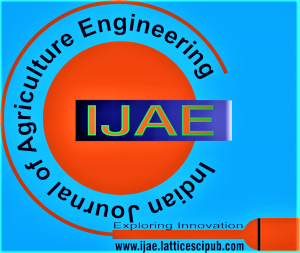![]()
Sustainability of Rice Wheat Cropping System in India
Shubham Singh
Shubham Singh, Master’s in Regulatory Policy and Governance Tata Institute of Social Science, Mumbai (M.H), India.
Manuscript received on 09 August 2024 | Revised Manuscript received on 30 October 2024 | Manuscript Accepted on 15 November 2024 | Manuscript published on 30 November 2024 | PP: 7-10 | Volume-4 Issue-2 November 2024 | Retrieval Number: 100.1/ijae.B1843113223 | DOI: 10.54105/ijae.B1843.04021124
Open Access | Ethics and Policies | Cite | Zenodo | OJS | Indexing and Abstracting
© The Authors. Published by Lattice Science Publication (LSP). This is an open-access article under the CC-BY-NC-ND license (http://creativecommons.org/licenses/by-nc-nd/4.0/)
Abstract: India’s rice-wheat cropping system (RWCS), responsible for 40% of the nation’s food grain production, has been a successful contributor to food security. However, despite nearly half of India’s populationrelying directly or indirectly on agriculture, and agriculture itself contributing 18% to the country’s economy, challenges loom large. One pressing issue is the Russia-Ukraine conflict, disrupting grain and fertilizer supplies, causing fertilizer prices to surge, and adding to the burden of already debt-ridden farmers. This crisis highlights the vulnerability of an agricultural system heavily reliant on external factors. Moreover, the RWCS faces environmental threats. Depleting groundwater levels from over-irrigation and excessive chemical use pose long-term risks. The use of chemicals, in response to diminishing soil health, leads to the harmful effects of biomagnification and eutrophication, disrupting food webs and chains, and impacting both ecosystems and human health [5] [7]. A shift toward sustainable and diversified agriculture is imperative to secure the future. Investing in modern farming practices, promoting organic farming, and encouraging crop rotation can help reduce the system’s environmental toll. Additionally, improving access to credit and insurance for farmers canease their financial burdens and ensure their livelihoods. In the face of these challenges, India must consider long-term sustainability to safeguard its food security, environment, and the well-being of it sagricultural workforce.
Keywords: Green Revolution, Accelerated Eutrophication, Biomagnification, Food Web, Pollen and Pistil Interaction, Bio Amplification, Milankovitch Cycle.
Scope of the Article: Agricultural Biotechnology
